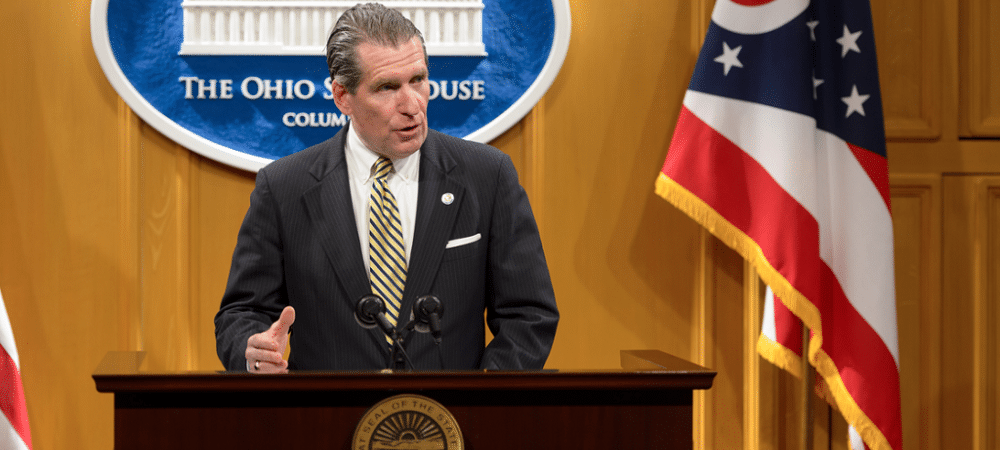Ohio Gaming Laws
COLUMBUS, Ohio -- Betting on sports is one step closer to becoming legal in Ohio, after the Ohio House of Representatives on Thursday approved a gambling bill that’s been debated in the Statehouse for over a year.
US Gambling Laws. Gambling is legal in some form across most of the USA. State-specific gambling laws regulate or restrict different types of gaming at the local level. The legislation varies around land-based casinos, charitable events, sports betting, lottery, keno, bingo, and skill games, depending on where you reside. We would like to show you a description here but the site won’t allow us. In regards to prohibited activities, along with vendors, operators and locations only purchasing and selling Types-B and C games to other registered and licensed vendors, operators, and locations in Ohio, no person can: Employ an SBAM Key Employee if that person is not licensed by the Commission. Online Gambling and Ohio Law. The Ohio Constitution’s gambling code is long and covers many topics. Two things that it fails to address include: Online gambling, or terms like “Internet,” “computer,” and “mobile device.” A simple definition of gambling. Ohio’s online gaming market is in a grey area due to the absence of legal.
House Bill 194 would put the Ohio Lottery Commission in charge of regulating the system, and would tax betting receipts at 10%, sending net proceeds to education and gambling-addiction programs. It would allow mobile betting, and also would permit certain veterans’ and fraternal organizations to offer on-site betting through approved state vendors.
House members approved the legislation 83-10, with ‘no’ votes coming from Republicans who are among the chambers more conservative members.
Ohio Gaming Laws
Bill sponsors said legalizing gambling on sports will bring the practice out of the shadows and allow Ohio to raise revenue off something that’s happening already. They also said it will prevent Ohio gamblers from taking their money to bordering states.
Democratic State Rep. Brigid Kelley, a bill sponsor along with Republican state Rep. David Greenspan of Westlake, said a sign in her Cincinnati district advertises sports wagering just 20 minutes away — across the Indiana border.
“So Ohioans who want to wager on sports have to go spend their money somewhere else in another state,” she said. “Well it’s either that or they call ‘their guy,’ or that’s how how I understand it. But we can change that.”
The House bill has faced opposition from socially conservative groups that oppose gambling on principle. Sports leagues and teams have pushed for the bill to require operators to use official league data, which they say would protect the integrity of sports but also allow them to directly profit on sports betting by selling the data to bookmakers.
“The truth is that HB 194 functions as a reverse Robin Hood – taking from the poor and giving to the rich,” leaders with the Center for Community Values, a socially conservative organization, said in a Thursday letter to state lawmakers.

The bill still faces a tough path to becoming law. Ohio Senate leaders and Gov. Mike DeWine both favor regulating sports betting through the state Casino Control Commission. That divide has contributed to the bill becoming bogged down even as other nearby states have legalized their own sports gambling bills.
Both the House and Senate proposals would allow for mobile betting. Neither would raise much money for the state — estimates from the nonpartisan Legislative Service Commission range from $15 million to $20 million in new tax revenues.
The Senate version would levy a 6.25% tax, with proceeds going into the state’s general fund, instead of being earmarked specifically for education.
Other states have moved to legalize sports betting since the U.S. Supreme Court ruled in legal in 2018, including most of Ohio’s neighbors. In December, Michigan became the fourth state neighboring Ohio to pass a legalization bill. While a Kentucky legislative committee advanced a sports gaming bill in January for full House vote, the bill has stalled since then.
The House on Thursday also approved House Bill 282, which makes it legal for charitable organizations to operate “electronic bingo” machines that resemble slot machines. The bill would expand existing laws that allow charitable organizations to offer paper “instant bingo” games, similar to lottery tickets. The bill has been backed by fraternal organizations which view the games as a way to raise revenue.
Read recent coverage from cleveland.com:
———
New Ohio Gaming Laws
©2020 The Plain Dealer, Cleveland
Visit The Plain Dealer, Cleveland at www.cleveland.com
Ohio Gambling Laws
Distributed by Tribune Content Agency, LLC.